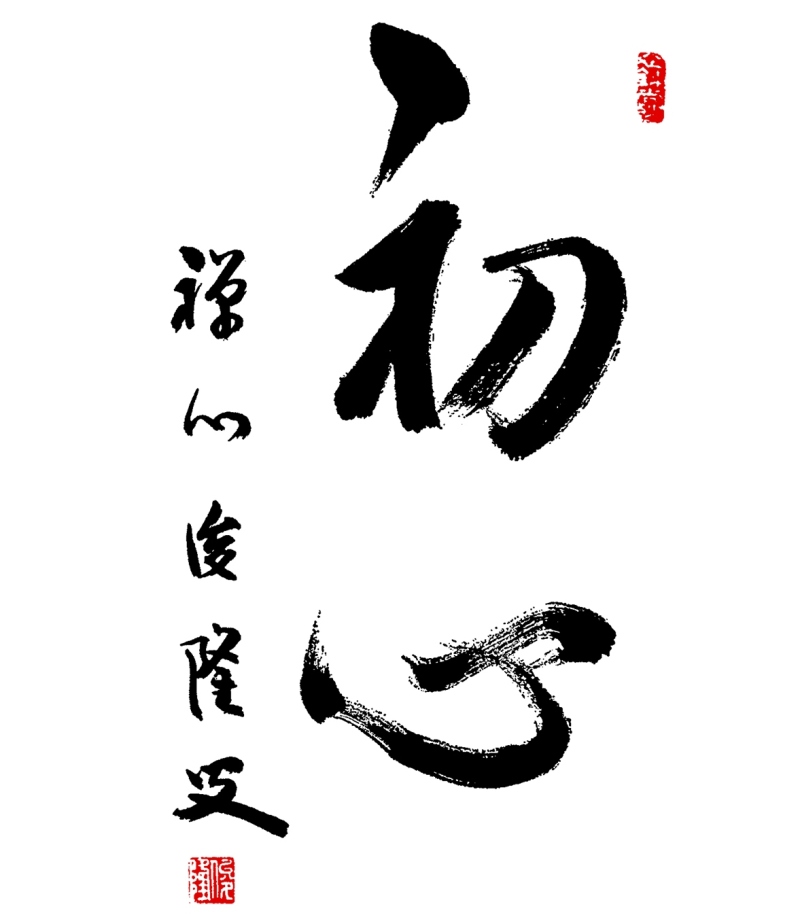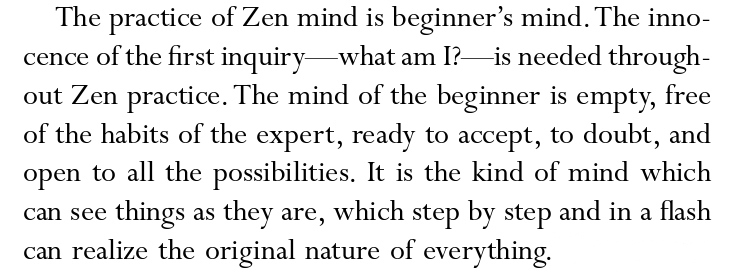Functional fixedness… and Zen
So much of what is talked about in HCD/UCD and Design Thinking is overcoming what in Psych terms is referred to as ‘functional fixedness’. Ie: ‘knowing things’ about a subject. This is reflected in assumptions – which need to be constantly re-examined to see if they are still relevant/valid. And it is reflected in choice of analysis methods. Indeed – any aspect of a problem – once it is ‘known’, I would suggest, ceases to be a tool for innovation – which in a slightly different permutation, is related to the cognitive bias known as the ‘Curse of Knowledge‘.
All the methods suggested by various design schools such as IDEO or Stanford:
- Looking at extreme cases
- Brainstorming
- Interdisciplinary knowledge
- Empathy
…are all just tools for overcoming functional fixedness. To my mind this sounds so very much like the ‘beginners mind’ of Zen practice. Zazen.
A monk asked Tozan when he was weighing some flax: `What is Buddha?’
Tozan said: `This flax weighs three pounds.’



 Address: 11 Silva St, Tamarama, Sydney, Australia
Address: 11 Silva St, Tamarama, Sydney, Australia Phone: +61 2 (0) 404 214 889
Phone: +61 2 (0) 404 214 889 Email:
Email: 
Lovely post Dan. I very much appreciate you cutting through the ‘design speak’ with fundamentals from another field. I am very much guilty of design speak myself so I look forward to more schooling 😉 But in all seriousness being able to articulate which fields design is related to and what methods it borrows and why, helps design as a discipline build its credibility and stop being perceived as the postures of the beret wearing set.
Thanks Erietta!
Just for the record though, all those methods I mention (apart from brainstorming – but that’s another story) I think are totally valid ways of trying to break the ‘set’ of our cognitive ruts. And hey – Psych just has it’s own jargon too. 🙂